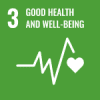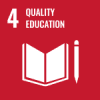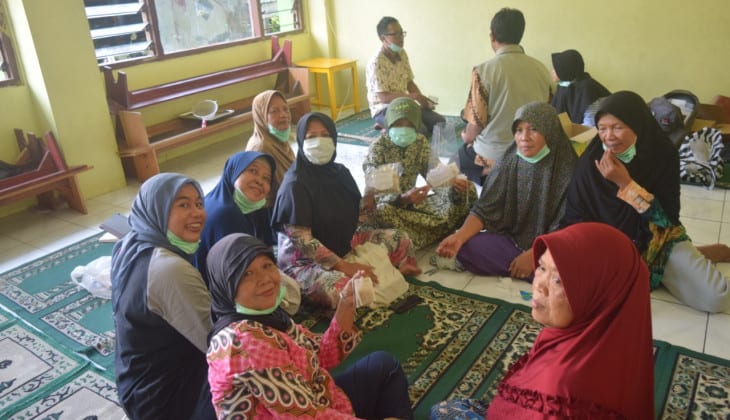For millions of Indonesians, jamu or herbal medicine is one of the drinks often consumed for medicinal purposes and health care. However, the development of herbal medicine at this time was hampered by various things, including widespread inaccurate information regarding the use of herbal medicines.
Five UGM students are trying to increase public literacy towards herbal and herbal plants to encourage the establishment of Kampung Pintar Wawasan Jamu (KAPIWAJA) in Ledok Tukangan Village, Danurejan, Yogyakarta City.
“If we look at various regions in Indonesia, there are many programs on the empowerment of herbal medicine. However, the obstacle that is often faced, especially in Ledok Tukangan Village, is the lack of public information about the identification of herbal plants and the scientific treatment of herbs as well as their benefits,” said Dendi Dwiki Cahyanto, a student of the UGM Faculty of Pharmacy.
Not only that, he said that the amount of wrong information or hoax news circulating about health can also be a serious obstacle that causes bias and results in errors in treatment.
“According to several pharmacists at RSUP Sardjito, every month some patients come because they get the wrong information about the processing and use of herbal and herbal medicines,” he said.
He worked on the program as part of the Student Creativity Program (PKM) with four other students who also came from the Faculty of Pharmacy, namely Pranadhia Mahirssa, Anisa Berliana Dian Aini, Husni Shofiana Ulfa, and Orin Dwipoyanti, under the guidance of Dr. Djoko Santosa, M. Si.
Intelligence discourse regarding correct information, he said, would be a strong solution when it could be integrated into the concept of a village that pioneered herbal culture tourism in the area of Kampung Ledok Tukangan. The students strive for this by providing literacy training and providing information on health, herbal medicine, and certified herbal plants.
This series of programs includes the formation of family medicinal plant cadres and jamu makers, counseling on jamu and herbal plant literacy, training on jamu, and a herbal festival. Held from March to August, the program involves Ledok Tukangan community, especially the women’s gymnastics association in Ledok Tukangan Village.
Apart from counseling, the students also provided the participants with techniques for making traditional herbal medicine to treat various types of diseases. This knowledge, according to Dendi, can not only be used personally, but also equips them with skills for making various herbal products that have a sale value.
The jamu and herbal plant festival is planned to be held at the end of this program period to disseminate the understanding of herbs and herbal plants. In addition, this activity can also be an event to introduce Ledok Tukangan Village to the general public and support the development of the village into an integrated tourism village.
“With the KAPIWAJA program, the residents of Ledok Tukangan Village are expected to be able to use herbs and herbal plants around their environment with proper efficacy and safety, and make this program a forum to preserve the herbal culture,” he concluded.



